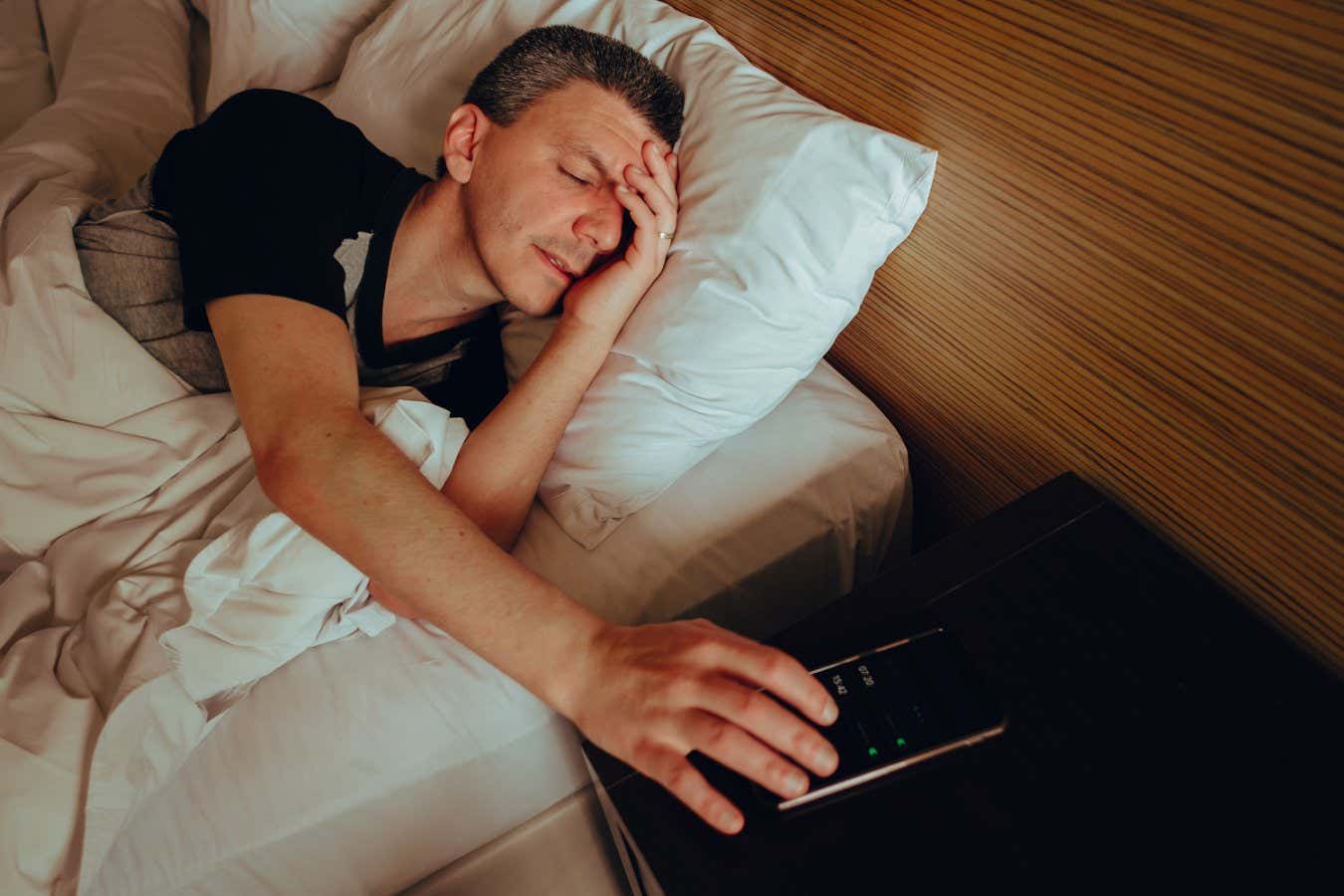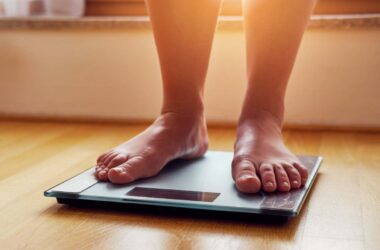Some say that snoozing your alarm makes you feel less awake during the day, but new research suggests that isn’t the case
RoxiRosita/Getty Images
Hitting the snooze button when your alarm goes off may not leave you in a sleepier state than if you just got up straight away.
Researchers have long wondered whether snoozing affects wakefulness or sleep quality. To learn more, Tina Sundelin and her colleagues at Stockholm University in Sweden analysed 31 people, who ordinarily snoozed at least twice a week, while they spent two nights in a sleep laboratory.
During the first night, the participants were free to go to bed at the same time as they normally would and set their alarm for the normal time they get up, without snoozing.
Around a week later, they returned to the lab, where they set their alarm half an hour before getting up and hit snooze every 9 to 10 minutes.
Immediately upon waking, the participants were given a saliva test to measure their levels of the hormone cortisol, with higher amounts being a sign of wakefulness. They also rated their sleepiness on a scale of 1 to 9 and were tested on their cognition skills and mood, both upon waking and 40 minutes later.
The researchers found that cortisol levels were slightly higher after snoozing, but there were no differences in sleepiness, mood, or cognitive performance between snoozing or waking immediately.
Overall, the participants slept on average six minutes less when snoozing and showed signs of poorer sleep quality during the last half hour of their sleep, measured by monitoring their brain waves. But there were no substantial differences in sleep quality across the two nights as a whole.
Jeffrey Durmer at SleepImage in Denver, Colorado, says that the study’s participants were all regular snoozers, so the results may not apply to people who only snooze every now and again.
In another part of the experiment, the researchers asked nearly 1500 people to complete a survey about their sleep habits, with 69 per cent reporting that they snoozed at least part of the time, mostly on work days. The snoozers, who were generally women, were on average six years younger and four times more likely to report themselves as being night owls than their non-snoozing counterparts.







